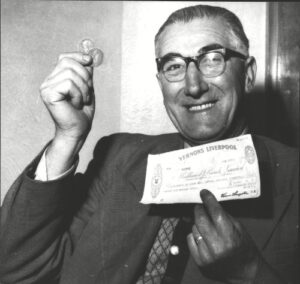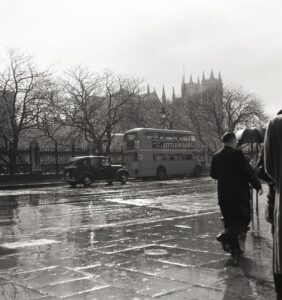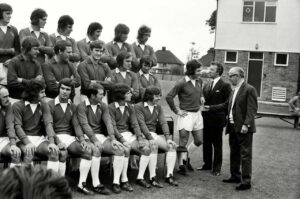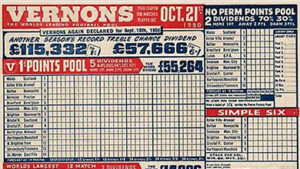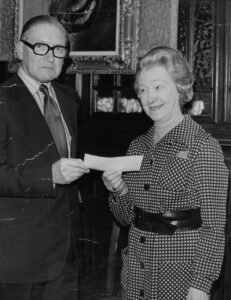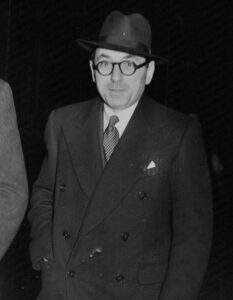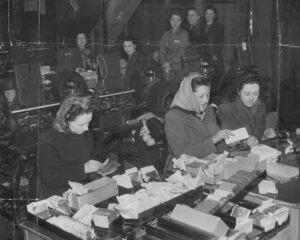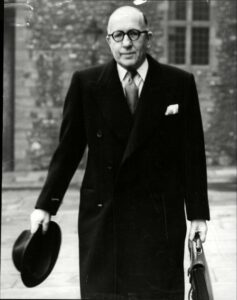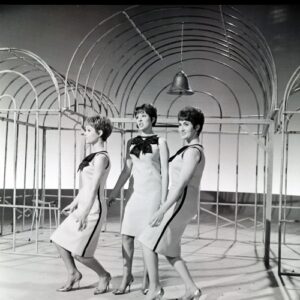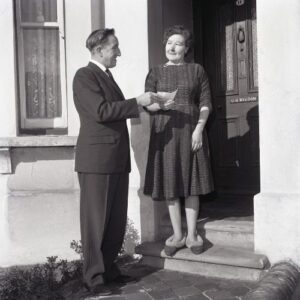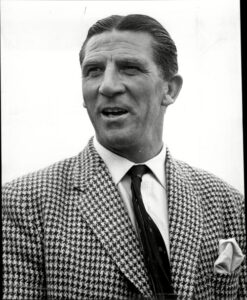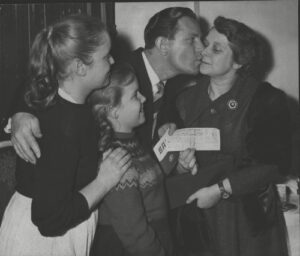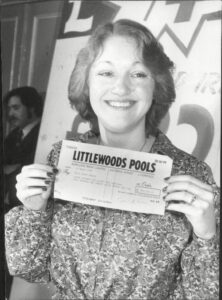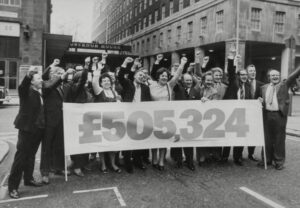-
The Seed is Sown
The Cricket & Football Field newspaper introduces readers to its first-ever football tipping competition in its 10th September issue. A reward of one guinea is proposed for participants who could successfully predict the results of four upcoming matches. The paper starts printing coupons that could be cut out, filled in and sent back to its office on a Friday prior to the matches due next week. The participation fee is set to zero excluding postage. The competition catches on, necessitating other newspapers to follow suit.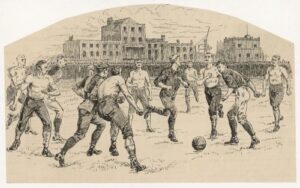
The Old Carthusians Vs Preston North End 1887. AOP
-
Tipping Becomes the Buzzword
With more and more newspapers jumping onto the bandwagon, football tipping competitions become all the rage. The Umpire, a provincial Sunday newspaper in England (later renamed as the Empire News) raises the top prize to £300 for six accurate predictions made in different football matches. All couponniers are encouraged to enter multiple coupons. The objective is to increase the sale of newspaper copies. The participation fee continues to be nil. Entries continue to be collected traditionally by post. Meanwhile, the business model starts evolving.
-
Football Pool Originates

Matthew Robson Pools Winner in 1957 – Won £75 000 For A Two Pence Stake On Vernons Pools. AOP
Inspired by the grand success of the tipping competitions, Birmingham resident John Jervis Barnard formulates his own competition. Tipsters could now bet on the outcome of football matches for an entry fee, thus contributing to a ‘betting pool.’ The winner could take home all the money pooled in minus a 10% kept aside to cover management costs. But the operations soon start fizzling out leaving Barnard struggling to earn profits. Nevertheless, this innovative idea excites workmates John Moores, Colin Askham and Bill Hughes who eventually meet up with him.
-
Littlewoods Pool Marks its Debut

An advert for ‘Littlewoods’, the football pools company is on the side of the bus in 1950s London. AOP
The three friends launch the Littlewoods Football Pool on the 1st of February after Hughes acquires one of Barnard’s pool coupons. The scheme remains the same as that of Barnard’s brainchild. The trio rent a small office in Liverpool, printing their first 4000 coupons. Moores, helped by some youngsters, tries to sell them outside Manchester United’s Old Trafford ground before a Saturday match due that winter. Only 35 coupons return for a bet value of £4 7s 6d (£4.37½). The 10% deducted fails to cover the expenses post which, they print 10000 coupons, hand them out in Hull before a big match and get back only one.
-
Littlewoods Becomes a One Man Show

John Moores in the 1970s – he took full ownership of Littlewoods pools empire some 40 years prior to this photo- where he meets Bingham Everton Team for which he also was acting Chairman. AOP
Towards the end of 1924 and the beginning of 1925, the scheme for Littlewoods Football Pool continues to lose money. By then, Moores, Askham and Hughes had already invested £200 each with no significant improvements in the offing. Hughes eventually proposes that the team cut their losses and shut up shop to which Askham agrees. However, Moores refuses to concur and offers to buy out his two workmates instead. He suggests returning the £200 each had invested in return for their shares. The duo accept his offer, which turns Littlewoods into a one-man show. Eventually, the business gathers steam and booms, making Moores a millionaire by 1930.
-
Vernons’ Pool Kicks Off

Vernons betslip from 1936. Image Credits twitter @footballmemorys
Littlewoods’ colossal success inspires many others, including Manchester department store owner Vernon Sangster, who comes up with a rival football pool. He partners with George Randall Kennerley – a Wirral-based businessman, to create Vernons’ Pools in Liverpool. Littlewoods continues to targets the working man’s pennies every week in exchange for prize money. Meanwhile, this North West-based company follows suit, but would soon decide to take a different route altogether by employing agents who would make house calls to collect the pennies. Pool betting is all set to get more convenient.
-
Zetters is Launched

Jack Boulder Of The Daily Mail Presenting A Cheque For £30 000 To Mrs Mary Bradshaw Of Manchester Who Used His Plan On Zetters Pools. AOP
Almost 8 years after the birth of Vernons, the next large rival company by the name of Zetters is founded in London. This is the third pool competitor following in the footsteps of its predecessor that would eventually play a vital role in shaping the future of modern-day football betting. As many as 28 different pool companies follow suit and coexist by 1939.
-
FPPA is Formed, Pool Betting Restricted

Alfred Cope a Football Pools Promoter Leaving A Tribunal in 1948.
The year hums with activity happening for and against football pools. Littlewoods, Vernons and Zetters come together to form the Football Pool Promoter’s Association. Other pools companies including Cope’s Pools (London), W.S. Murphy (Edinburgh) and Western Pools (Newport) join in. Meanwhile, a report by the Royal Commission proposes football pools be banned, but eventually withdraws after the companies urge customers to write to their Member of Parliament. On 27 March, the 1934 Betting and Lotteries Act is passed, restricting pool betting to a degree. Football pools thrive nonetheless.
-
The Pools War is Waged

Workers at an betting pool office. AOP
Revenue from the 28 football pools companies reaches nearly £30 million per annum. For every six million recorded postal packets sent in the UK every week, four million turn out to be those of pools entries. However, football pools go down like a lead balloon with the English Football League. They not only disrelish the idea but also decide to crush the industry by delaying publication of their fixture lists so pools companies are unable to print, distribute and collect coupons on time. This decision does not go down well with the companies that retaliate by printing coupons with only the home teams. They even manage to lay hands on unofficial leaks of the fixtures and make the best use of them to give customers enough time to send in their coupons. This Pools War comes to an end on 9 March after two weekends of the fixture lists being not published early. Another attempt to ban football pools is proposed soon after by R. J. Russell in Parliament. But the final nail in the coffin for such attempts is hammered on 3 April when the Bill is defeated by 287 votes from pools players to 24 from non-pools players. This is, however, only the beginning of a bigger war.
-
Football Pools Reel Under World War II
During the Second World War, the Post Office deems pool coupons as non-essential items and refuses to deliver a large number of them. Football pools are driven to the verge of ceasing operations. Littlewoods hands over most of its properties to be contributed towards war efforts. Nevertheless, the companies continue throughout the war, but on a smaller scale. Many people – supporters and opponents alike – opine this could be the end of the business for good. However, proving all of them wrong, a Unity Pool organisation is created by the end of the war. It brings together seven of the largest pool companies to produce joint coupons instead of offering their own. Vernons, Zetters and Littlewoods team up. Football pools spring back to business with the revenue increasing more than ever.
-
Pools Industry Revenue Trebles
Pools revenue increases to around £70 million per annum – three times higher than before. Over 90% of it is split between Littlewoods, Vernons, Cope’s and Sherman’s. The pools industry accounts for nearly 15 million postal packages every week through the Post Office. Employment in the industry is on a steady rise, which would soon be 100,000 people strong by the 1950s.
-
Treble Chance Game is Introduced

Harry Sherman Of Sherman Pools in an photograpgh taken 1948. AOP
Post war, three other pools companies pop up – Brittens in Leichester, Empire in Blackpool and Sherman’s Pools in Cardiff. The pools industry gets a big boost with the inauguration of the Treble Chance game. This newly formulated game gives players a list of football matches due in the coming week and allows them to pick only eight matches per line by crossing specific boxes on a printed coupon. A points system is put in place to assess the results. Whoever scores closest to eight out of eight, wins the pool. The combined entry fee of all players is distributed as prize money among the winning tickets. The Treble Chance game eventually surpasses the popularity of Penny Points and Penny Results because of the huge potential jackpot it offers – something no other form of gambling does at this point in time. The idea of winning big from small stakes piques the punting public’s interest, shooting up participation.
-
The Vernons Girls Choir Rolls Out

The Vernon Girls perform on ‘Thank Your Lucky Stars’ TV Programme in 1961. AOP
The Vernons Pools launches The Vernons Girls as a singing choir of female employees who are in charge of checking the pools coupons. Originally 70 artists strong, the choir rises in popularity enough for Vernons to contemplate using it for commercial and promotional purposes. The ensemble is eventually trimmed down to 16 artists and signed by Jack Good for the BBC TV show ‘6.5 Special.’ The girls even go on to act as session singers in the shows ‘Oh Boy’ and ‘Boy Meets Girl.’ Two of them marry rock-and-roll stars Marty Wilde and Joe Brown. The Vernons Girls finally disbands in 1964 to form other girls’ groups or fly solo.
-
Pool Collectors Hit the UK Streets

A smartly dressed gentleman presenting a cheque to a surprised, and slighly shocked housewfie still in her slippers on the doorstep at the entrance to her house, England, UK in 1964. AOP
Defying conventions, the first pool collectors take to the UK streets to directly collect coupons from the bettors’ homes. This door-to-door service revolutionises the entire pool betting business model. The collectors act as salespersons employed on a commission basis who receive a percentage of every coupon they can manage to sell. The concept catches on and grows colossally.
-
The League Win a Copyright Fight
In July, Her Majesty’s High Court of Justice in England deems that the Football League own the copyright to their list of fixtures. The League’s landmark copyright victory against Littlewoods, in turn, leads to an agreement of 10 years being signed between the pools companies and the English as well as Scottish Football Leagues. Accordingly, the former would be obliged to pay the leagues either 0.5% of the stakes received or a minimum amount of £245,000 per annum. In the near future (1972 – 1973), this very deal would be extended for 13 years and worth £23 million. Meanwhile, as a consequence of the new law, Vernons’ profits take a small hit.
-
The Pools Panel Gets Going

Former Footballer Ted Drake and later Manager Of Chelsea F.C. joined the board of the Pools Panel at it’s early stages. AOP
In January, decades after the Football Pool Promoter’s Association was formed, Vernons and the other pools companies come together for one more time to introduce a board known as the Pools Panel. This action is an immediate response to issues resulting from matches being postponed and their results adjudicated due to the Big Freeze – a particularly cold winter that year. The board is offered a shedload of money and a luxurious stay at a swanky hotel to predict the outcomes of the week’s fixtures. On 23rd January, the members predict 7 draws, 8 away victories and 23 home victories; their results are broadcast on television. The deductions are then used to settle pools coupons of abandoned fixtures. Initially joined by former footballers Ted Drake, Tommy Lawton, Tom Finney and George Young and ex-referee Arthur Edward Ellis, the Pools Panel soon sees other ex-players and officials signing up for membership.
-
Rumors Engulf the Pools Panel
Over the years, members of the Pools Panel change. Sportsman Raich Carter join the board in 1969. At this point in time, George Swindin, Neil Franklin, Arthur Ellis, Ian McColl and Stan Mortensen are the other members with Sir Ronald Howe as the chairman. Soon, rumors start spreading that the members of the Pools Panel earn way more than the national wage of the time.
-
First Win Over £500,000 is Awarded

Nellie McGrail celebrating the Win With Her Daughters At Reception At Grosvenor House
The soaring popularity of Football and pool betting is swiftly followed by massive wins being dished out. The first in the line is a win of over £512,683 claimed by one Cyril Grimes of Liss, Hampshire. Before him, Keith Nicholson of Castleford had won £152,319 in 1961 and Nellie McGrail of Stockport had won £205,235 in 1957.
-
First Win Over £750,000 is Awarded

Pools Winner Irene Powell With Her Cheque. AOP
Seven years after Grimes’ win, Irene Powell – a 20-year-old hairdresser from Port Talbot walks away with a win of £882,000 – the first-ever above £750,000. The pools continue to grow from strength to strength and the prizes continue to grow bigger.
-
First Million-Pound Win is Awarded

It was not unusual to celebrate syndicate wins with taking a picture with the group holding a plaque with the price money. AOP
The year turns out to be a breakthrough for football pools as the first million-pound jackpot is awarded to a syndicate of hospital workers from the town of Devizes in Wiltshire, England. The syndicate scoops a reward of £1,017,890 – a piece of news that immediately grabs headlines.
-
The Syndicate’s Record is Broken
Surpassing the syndicate Wiltshire, England, Barry Dinsdale of Kingston upon Hull bags a win of £1,910,972. This would be the last win of over a million-pound win before the pools create their first double-millionaire.
-
Ladbrokes Acquires Vernons

Ladbrokes betting shop on the high street in 1989. AOP
Gambling behemoth Ladbrokes purchases Vernons as part of its strategy to expand and diversify its business. However, it does not rebrand the company. Instead, Vernons is freed from its formal charge of the company but allowed to continue trading under its established and recognised name. This is considered a smart move to monetize the football pool’s glorious history and strong influence.
-
First Double Millionaire is Created
Rodi Woodcock becomes the first-ever double millionaire created by football pools, netting a reward of £2,072,220. Pools betting is still on a rise.
-
Enter The National Lottery

National Lottery draw on TV in 1994. AOP
Vernons witnesses a record rise in the number of pools players – a whopping 10 million every week. Just as the company hands out a win of £2,924,622 on a weekend, the National Lottery is inaugurated and takes the country by storm. A weekly televised draw is organised and bigger jackpots are advertised. Soon enough, the popularity of football pools substantially declines as players find themselves switching to the new and simpler National Lottery in hopes of winning that life-changing amount. Although this is not the end of football pools companies, it surely appears to be the beginning of their downfall. By 2006, the number of players would decrease from the peak of 10 million to 830,000 and to 700,000 by 2007.
-
Vernons’ Doorstep Collection Service Ends

Tv Presenter Jenny Powell Launches Vernos National Lottery Football Game ‘easy Play’. AOP
In February, as the National Lottery continues to overshadow football pools, Vernons officially pulls the plug on its doorstep pools coupon collection service. Instead, it partners with the National Lottery itself to start a lucky dip-style lottery game called Easy Play during the 1998 – 1999 football season. This move eventually helps Vernons resume traditional business somewhat. However, it is soon hit by a sales slump after which, it closes the game as well. Easy Play lasts for only one season. Vernons would go back to resuming its old business next year.
Fun Facts
- Before Football Pools became a thing, betting was legal only on horse racing courses.
- In 1923 – the year Littlewoods Football Pool was formed, the BBC was granted a broadcasting licence, the wedding of Prince Albert and Lady Elizabeth Bowes-Lyon was held and the Liquor Act was passed making it illegal to sell alcohol to under 18s.
- Littlewoods Pool was named after Colin Askham’s aunt, who raised him as an orphaned child. His birth name was Colin Henry Littlewood.
- The name Littlewoods was chosen because John Moores, Colin Askham and Bill Hughes were then working for the Commercial Cable Company. Any employment outside it was not permitted.
- John Moores decision to not quit came after his wife said, “I would rather be married to a man who is haunted by failure rather than one haunted by regret.”
- In April 1929, Moores was prosecuted and convicted under the Ready Money Betting Act 1920. However, he appealed and won the case as his company only accepted postal orders and never cash. The postal orders were cashed only after the football results were out and the winning amount was confirmed.
- The Littlewoods Football Pools Collection records the history of the pools. Currently, the National Football Museum holds it.
- In 2020 Vernons journy ends, as it get’s discontinued being one of Betsson Group Ltd eight UK-focused brands that are pulled out of the markets as unprofitable. As part of the groups business strategy, the former Vernons customer base get’s consolidated into another iconic brand – Rizk Casino for Canada and UK
- Vernon is also the name of a town located in the southern British Colombia, Canada. It’s long history includes many tales of gold-miners and old-timers seeking fame and fortune. In 1863, gold was discovered in Cherry Creek about 40 kilometres east of Vernon.
- Today Vernons.com is reborn as an virtual showroom for the best casino bonus offers in Canada. The offers are continuously updated and carefully maintained by former gambling professionals and cherished by users.
